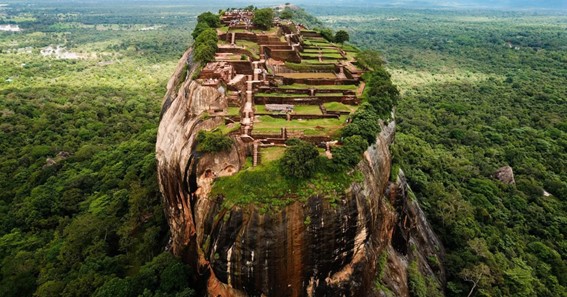Most wildlife lovers dream about visiting some of the amazing wildlife destinations on offer in this amazing world of ours! And along with exciting new cultures, different landscapes, and a breathtaking array of animals the world is truly a treasure trove waiting for you! Here are just some of those enticing destinations:
1 – Greenland: stunning landscapes and amazing marine animals
Greenland’s varied landscapes are extraordinary as ice and snow merge with eye-catching geological features and an amazing diversity of plant life. Though close on 81% of the country is covered by an ice sheet, the coastal areas are surprisingly warm and offer great hiking opportunities.
This Arctic paradise hosts several marine species like seals, polar bears, walruses and humpback whales. Musk oxen, reindeer, Arctic foxes, wolves, stoats, lemmings, as well as the occasional rare wolverine are all seen here. Majestic white-tailed eagles, peregrine falcons, snowy owls, skuas, eider ducks, and terns are just a few of the 230 bird species that have been identified here! Feel energetic? Kayaking, mountain biking, dog sledding, skiing and snowmobiling are all on offer. So are cruising, hiking and cultural visits to learn about Inuit art and life.
2 – Portugal: superb birding and wildlife
Portugal may not be the first wildlife destination that springs to mind, but it has a lot to offer! The Iberian Peninsula has marvelous beaches and vibrant cities. In the interior, rolling hills and the plains give way to rugged mountains and picturesque gorges and valleys. The archipelagos of the Azores and Madeira have unique flora and fauna that teems with seabirds and cetaceans like pilot, minke, sei, sperm, and blue whales. As a birding destination, Portugal is phenomenal. The marshes, saltpans, and cork oak woodlands of the Algarve teem with birdlife like greater flamingos, wading birds and herons. The Tagus estuary near Lisbon is world-famous for flamingos, avocets, gulls and waders. Wolves are making a comeback, and visitors can also see otters, genets, wild boar, Iberian lynx, Estrela mountain dogs, fire salamanders and fallow deer.
Click Here – What Is Concrete Spalling? Causes Of Concrete Spalling
3 – Svalbard: polar bears and icy vastnesses
Located between Norway and the North Pole, the Svalbard Islands are spectacular wilderness areas where polar bears are the apex predator. Listed as threatened in 2008, polar bear numbers have been increasing and now stand at about 3,500. The Inuit name for them, Pihoqahiak, means the ‘ever-wandering one’ and is a perfect description of these solitary wanderers. They spend most of their time on the frozen sea ice where they find their main food supply, seals, with their extraordinary sense of smell.
A cruise on an expedition ship designed specifically for Arctic waters
is the safest and best way to see polar bears on Svalbard. You’ll also be able to see whales, walruses, reindeer, Arctic foxes, and vast
numbers of birds.n These include little auks, guillemot, skuas, snow buntings, and a wide variety of geese.
4 – South Africa: the Greater Kruger
Covering close on two-million-hectares, the Greater Kruger is one of the world’s premier and most diverse wildlife destinations. It covers eight different biomes, with more than 500 bird species, close on 150 mammal species, and no fewer than 200 species of trees. The Greater Kruger consists of the original Kruger National Park and a large number of private game reserves. The fences between the various reserves were removed in 1993 to allow animals free movement. Visitors can see the famous Big Five, as well as several rare (and endangered) species like pangolin, white lions and ground hornbills.
The oldest game reserve in the Greater Kruger is the time-honored Sabi Sands. It provides visitors with some of the best safari lodges in the Kruger Park, as well as unrivaled game viewing. With superb service, expertly guided game drives and great activities for kids, this is definitely a destination for that bucket list!
5 – Poland’s primeval Białowieża Forest
Straddling the border between Belarus and Poland, the primeval Białowieża Forest is one of Europe’s last remaining big forests. It is a UNESCO world heritage site and one of Europe’s last “true wild places”. With ancient elm, oak and lime trees, it offers an unparalleled natural habitat.
It offers visitors a chance to see Europe’s heaviest land animal, the massive European bison, roaming freely. Between 500 and 800 of these goliaths still roam the forest. There are 60 other species of animals here including moose, red deer, roe deer, wild boar, hares, wolves and lynx.
6 – Scotland: the Outer Hebrides
Without pollution or disturbance, Scotland’s Outer Hebrides offer visitors some of the last truly unspoiled natural landscapes in Europe. Visitors get a privileged look at scenes that seem to belong to a forgotten time. Massive sea eagles soar over a rugged landscape that still has an estimated 4,000 red deer roaming freely over the ancient peat-rich moorlands. Visitors can take tours to see huge otters, that grow up to four feet long, swimming in the sea lochs. Minke whales, porpoises, orcas, basking sharks and various species of dolphins are also often seen in the waters surrounding the islands. The Hebrides are very popular birding destinations. Boat trips and tours are on offer to visitors.
Has this brief glimpse at some of the superb wildlife destinations made you want to reach for those travel bags? With the wide world full of magical destinations we predict that your bucket list is going to fill up fast!







